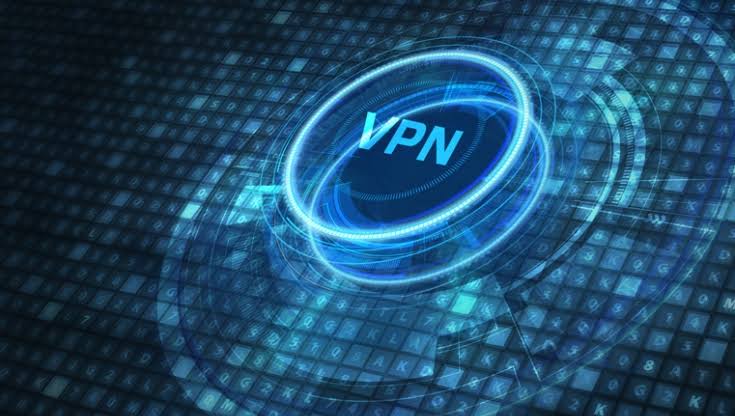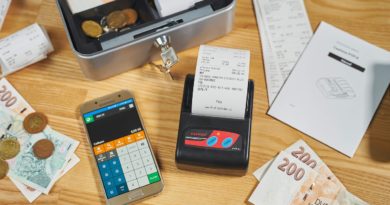Can You Use a VPN in School, College & University?
In today’s digital landscape, the Internet is essential to many aspects of our lives, including educational activities. Students use the internet extensively for social networking, research, online classes, and recreational activities. Nevertheless, public Wi-Fi has security issues because hackers can intercept data, resulting in fraud and identity theft. Virtual private networks, or VPNs, become essential in this situation.
VPNs differ throughout educational institutions; some allow it, while others restrict it to stop distractions like online gaming, torrenting, or visiting websites that violate copyright. This article will discuss why college students should consider using a VPN for increased protection.
What is a VPN?
VPN (Virtual Private Network) allows a secure network connection, especially when connecting to public networks. VPNs improve your online privacy and make it more difficult for third parties to track you down or steal your data by encrypting your internet traffic and hiding your real identity online. It keeps your online activity and hides your location by encrypting your internet data and passing it through a VPN server. A VPN is a simple and efficient way to increase security, especially when using unprotected public Wi-Fi, whether in an educational context or without access to private internet.

Must I Utilize a VPN in School?
A VPN can perform many purposes in a school setting, which benefits students. VPNs are excellent for remote work layouts when using a public connection for education or research. It secures the security of your data. However, each educational institution has its structure, and not all of the following principles may apply to your school.
Convenience
School networks may ban certain terms and phrases for some reasons. Nevertheless, using a VPN in school on your device enables you to overcome these network limitations because word-based firewalls might be incorrect and accidentally ban harmless terms. You can now more easily access the web resources you need for your studies.
Security
When you connect to the internet at school, you are linked to a shared network that students and teachers use. School networks strive to be safe, but their security is uncertain. A VPN in school provides security and guarantees your browsing history and data privacy.
Privacy
Some students may be concerned about the probability that your school is monitoring your activity when you use its Wi-Fi. In these kinds of circumstances, a VPN in school can be useful.
Consider a student or a teacher at an atheist school where expressing personal beliefs is looked down upon. Students can access online groups, resources, and assistance without worrying about institute surveillance because the VPN encrypts their communication.
Avoiding Censorship and Geo-Restrictions
Another strong argument favoring students using VPNs is their ability to bypass censorship and geo-restrictions at school. Some sites and services are available only to certain countries or areas. Nonetheless, with a VPN, you can get any content that would be blocked by pretending to be elsewhere. One could use an essay-writing service as an illustration. With the help of any nation’s server, one can employ their services and receive effective assistance in academic affairs.
May I Utilize a VPN in University or College?
A VPN protects you from identity hackers by preventing internet attackers from acquiring your personal information for nefarious purposes such as tax fraud, harassment, or illegal investments. It offers maximum security for your devices, safeguarding IP addresses, enabling streaming, and fending off server attacks.
Using a VPN while studying college or university is certainly something we suggest. Examine the main arguments supporting this suggestion.
Privacy
Your internet service provider or college may monitor and record everything you do online, even from trustworthy websites. Protect your privacy, especially while downloading files, because your ISP or university might restrict network access and provide your data to authorities. Use a VPN to stay secure! Use a secure server to encrypt your online requests to protect your privacy, and you may browse safely.
Security
Your personal information may be secure if linked to a university network. However, it is essential to use caution and take additional steps to prevent cyber theft. A trustworthy VPN encrypts your data and prevents hackers from accessing information.
Temporary IP Addresses
Another advantage for students is the opportunity to browse with a different IP address. Your IP address indicates where you are, but you can take on their address by connecting to a VPN server. Many educational resources are only available in certain places. Connecting to a US server becomes significant if you need access to a research article only available in the United States.
Hacking Protection
Protecting your data is essential to protect your files from online threats. Cybercriminals frequently use extortion to access banks and government agencies, among other targets. It’s necessary to protect sensitive data from hackers. Your data is at risk even with a single compromised system since hackers can exploit network vulnerabilities. Take immediate action to protect your company or institution and strengthen your files.
Will My Institution know if I use the VPN?
Using a VPN in your university may or may not be detectable or not following different circumstances and guidelines by network administrators in these institutions. Sometimes, it’s difficult to notice if someone is using VPNs over normal web traffic, and sometimes, network administrators can tell when someone tries to connect using their virtual private network.
Using a VPN without authorization within an academic or corporate entity may conflict with the institution’s regulations. Talk with your organization’s management or IT team to know their policy regarding using VPNs and ask for permission when necessary. You must honor all company regulations about Internet and computer use at work.
Is it Legal to Utilize a VPN at School?
Using a VPN is completely lawful if your online actions are legal. Many private individuals, governments, and businesses use VPNs regularly to protect their information or themselves.
Nevertheless, the misuse of technology should be distinct from the technology itself if it distracts students from studying through excessive internet assignments that are irrelevant.
Your college or school may have different regulations. You should talk to your teacher or school administrator if you have concerns about using a VPN. Furthermore, depending on what country you are in, these restrictions can vary.
Who Must be Utilizing a VPN
If you want to keep yourself safe on the internet, you must have a VPN. Your data will be kept private by a good VPN that safeguards you from internet threats.
If your internet service provider (ISP) is tracking your online activities, it would be wise to use a VPN. Preventing your ISP from spying on what you do online is why you should use a VPN when browsing the internet. Mind you, this information is still accessible by the VPN service provider.
You may protect your sensitive personal data and guarantee complete anonymity by choosing a VPN. You may access any information using the VPN program, which has many features that are easy to use and outstanding speed.
Conclusion
Considering using a VPN in a classroom where education is evolving is important. Nevertheless, technology can protect students’ privacy, allow them to access global resources, and enhance security. However, this means that security and connectivity must be balanced so that instructors and students can create a digital learning environment.
A VPN improves the security of educational institutions, enhances their privacy, and facilitates resource access. College and university students who want to surf the web securely should consider VPNs. Using VPNs may be legal if you use it for good purposes. However, users must go with what their institution has laid down. Generally, everyone who cares about online anonymity should have reliable VPNs like ExtremeVPN. It comes with encryption protocols, hides you from service providers tracking your browsing patterns, and has fast and friendly tools.
FAQs
Can my university restrict VPN access?
Different institutions have different policies. Some institutions may prohibit using VPNs, torrent clients, and unauthorized streaming sites.
Should I use a free VPN?
Users of free VPNs are frequently forced to upgrade due to restrictions like data restrictions and fewer servers. Some people might even gather and sell your data for financial gain, so be careful. Stay away from free VPNs that seem too good to be true.
Do Universities Track What You Do on the Internet?
The institution can monitor the websites you visit when you use your laptop or phone to access campus Wi-Fi. They can also view the precise content you’ve seen if the websites don’t use HTTPS protection.
Do Institutions Restrict VPN Access?
Unlike colleges, universities may prohibit VPN services on specific ports rather than place Wi-Fi restrictions on campus networks. Unlike public sector firewalls, universities don’t use HTTPS/HTTP ports.
Are VPNs all the same?
No, there are differences among VPNs. They can be different regarding security, privacy, speed, and usability, among other things.
Do I need to use a VPN all the time?
No, using a VPN continuously is not necessary. It all depends on what you do online and how much protection and privacy you need. We suggest using a premium VPN when accessing sensitive information online or utilizing public Wi-Fi networks.



